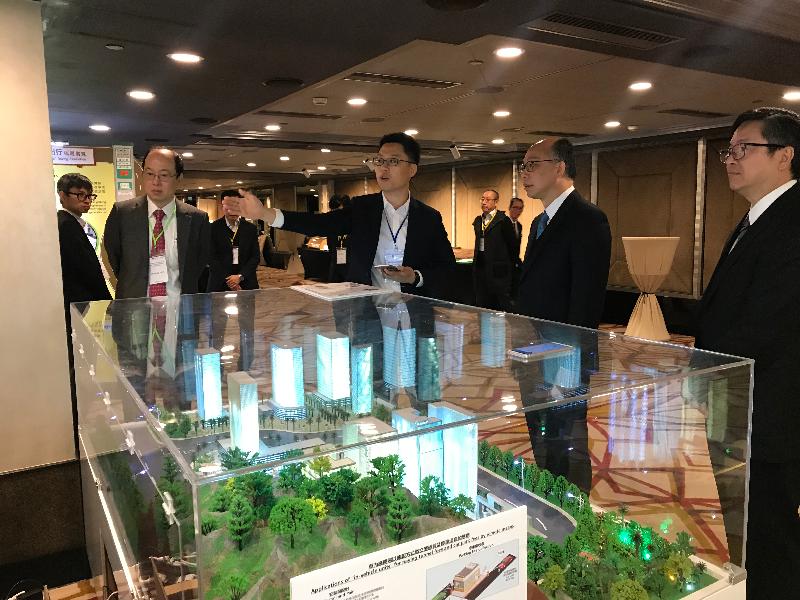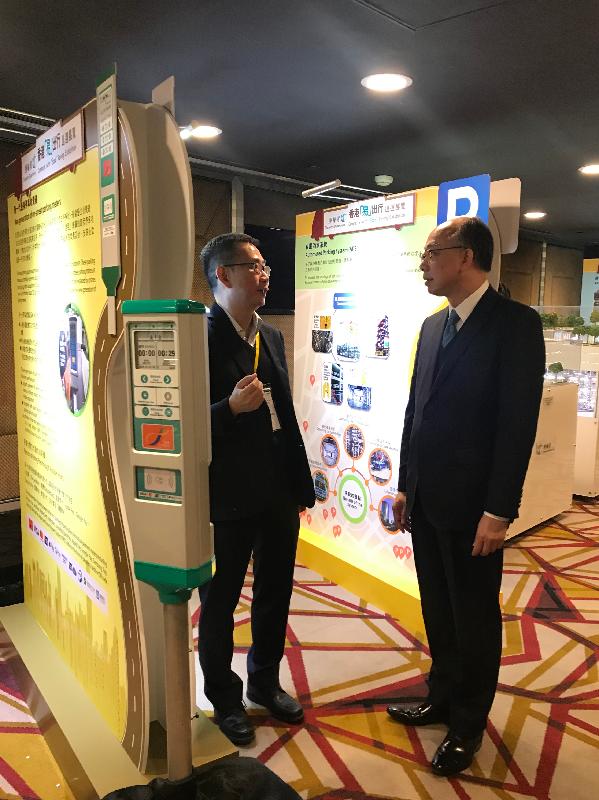LegCo to debate proposed resolutions on appointment of judges
The following is issued on behalf of the Legislative Council Secretariat:
The Legislative Council (LegCo) will hold a meeting tomorrow (December 4) at 11am in the Chamber of the LegCo Complex. During the meeting, Members will debate two proposed resolutions on appointment of judges.
These two proposed resolutions will be moved by the Chief Secretary for Administration under Article 73(7) of the Basic Law and section 7A of the Hong Kong Court of Final Appeal Ordinance. The proposed resolutions are set out in Appendices 1 and 2 respectively.
On Members' motions, Mr Vincent Cheng and Mr Wong Ting-kwong will move separate proposed resolutions under section 34(4) of the Interpretation and General Clauses Ordinance to extend the period for amending the Employees Retraining Ordinance (Amendment of Schedule 2) Notice 2019 and the Tax Reserve Certificates (Rate of Interest) (Consolidation) (Amendment) Notice 2019, laid on the table of the Council on November 6, 2019, to the meeting of January 8, 2020. The proposed resolutions are set out in Appendices 3 and 4 respectively.
Meanwhile, Members will debate a motion under Article 73(9) of the Basic Law to form an independent investigation committee to investigate the charges against the Chief Executive for serious breach of law and/or dereliction of duty. The motion, jointly initiated by Mr Alvin Yeung, Mr James To, Mr Leung Yiu-chung, Professor Joseph Lee, Ms Claudia Mo, Mr Wu Chi-wai, Mr Charles Mok, Mr Chan Chi-chuen, Mr Kenneth Leung, Dr Kwok Ka-ki, Mr Dennis Kwok, Dr Fernando Cheung, Dr Helena Wong, Mr Ip Kin-yuen, Mr Andrew Wan, Mr Chu Hoi-dick, Mr Lam Cheuk-ting, Mr Shiu Ka-chun, Ms Tanya Chan, Mr Hui Chi-fung, Dr Cheng Chung-tai, Mr Kwong Chun-yu, Mr Jeremy Tam, Mr Gary Fan and Mr Au Nok-hin (25 Members), is to be moved by Mr Alvin Yeung. The motion is set out in Appendix 5.
Mr Wong Ting-kwong and Mr Wong Kwok-kin will move separate motions under Rule 49B(1) of the Rules of Procedure to relieve Ms Tanya Chan and Mr Shiu Ka-chun of their duties as Members of the Legislative Council. The motions are set out in Appendices 6 and 7 respectively.
Dr Kwok Ka-ki and Ms Claudia Mo will move separate motions under Rule 49B(1A) of the Rules of Procedure to censure Mr Junius Ho. The motions are set out in Appendices 8 and 9 respectively.
Ms Yung Hoi-yan and Mr Junius Ho will also move separate motions under Rule 49B(1A) of the Rules of Procedure to censure Dr Cheng Chung-tai and Mr Lam Cheuk-ting. The motions are set out in Appendices 10 and 11 respectively.
Mr Dennis Kwok, Dr Kwok Ka-ki, Mr Alvin Yeung and Dr Fernando Cheung will move separate motions under Article 73(5) and (10) of the Basic Law to summon persons concerned to produce papers and testify. The motions are set out in Appendices 12-17 respectively.
Mr Au Nok-hin, Mr Andrew Wan, Mr Jeremy Tam, Ms Claudia Mo, Ms Tanya Chan, Dr Kwok Ka-ki, Mr Lam Cheuk-ting, Mr Kwong Chun-yu, Mr Gary Fan and Mr Chung Kwok-pan will move separate motions under the Legislative Council (Powers and Privileges) Ordinance to appoint select committees to conduct inquiries. The motions are set out in Appendices 18-29 respectively.
Dr Priscilla Leung will also move a motion under the Legislative Council (Powers and Privileges) Ordinance to appoint a select committee to conduct an inquiry. The motion is set out in Appendix 30. Mr James To will move an amendment to Dr Priscilla Leung's motion.
Meanwhile, Mr Dennis Kwok will move a motion on no confidence in the Fifth Term Government of the Hong Kong Special Administrative Region as set out in Appendix 31. Ms Claudia Mo will move an amendment to Mr Dennis Kwok's motion.
Mr Ho Kai-ming will move a motion on ensuring children's right to play for them to grow up happily. The motion is set out in Appendix 32. Mr Ip Kin-yuen, Dr Kwok Ka-ki, Dr Fernando Cheung, Dr Chiang Lai-wan and Mr Hui Chi-fung will move separate amendments to Mr Ho Kai-ming's motion.
On Member's Bill, the St. John's College (Amendment) Bill 2019 will be introduced into the Council for the First Reading and the Second Reading. The Second Reading debate on the Bill will be adjourned.
During the meeting, Mr Abraham Shek, Chairman of the LegCo Public Accounts Committee, will present the "Supplemental Report of the Public Accounts Committee on Report No. 72 of the Director of Audit on the Results of Value for Money Audits" and address the Council.
Members will also ask the Government 22 questions on various policy areas, six of which require oral replies.
The agenda of the above meeting can be obtained via the LegCo Website (www.legco.gov.hk). Please note that the agenda is subject to change, and the latest information about the agenda could be found on the LegCo Website.
Members of the public are welcome to observe the proceedings of the meeting from the public galleries of the Chamber of the LegCo Complex. They may reserve seats by calling 3919 3399 during office hours. Members of the public can also watch or listen to the meeting via the "Webcast" system on the LegCo Website.



